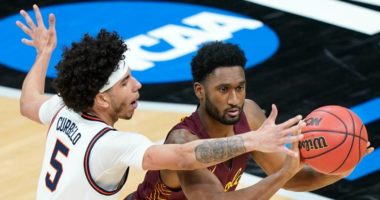In-State College Betting Bill Still Alive, But In Limbo Until October Veto Session


Yet Illinois’ Rep. Michael Zalewski believed that by the start of the college football season, in-state school wager would be available.
Zalewski tweeted about the upcoming change in in-state sports betting, pending the governor’s signature, after the House passed a gaming bill on the last day of the legislative session.
Clearly, he thought that the Senate section was a done deal. But, other priorities and a lack of time to review the policy led the Senate to refuse to manage the costs.
Sen. Cristina Castro informed Play Illinois that:
The Senate wasn’t provided the chance to scrutinize and evaluate it. From the Senate’s perspective, I believe it’s mainly an act of tidying up. Everything is substantial. There are just a handful of items that, to my understanding, warrant further investigation, based on the last information I received prior to adjournment.
Entertainment expenses from the past are nothing novel in Illinois.
Rep. Bob Rita transformed a minor raffle bill, passed by the Senate in April, into a comprehensive gaming omnibus bill on Memorial Day. In addition to the raffle component, the bill also includes several clean-up items for sports betting, casinos, horse racing, and video gaming terminals (VGTs).
It shouldn’t be surprising. It’s akin to the legalization of sports betting in June 2019, which was part of a gaming package assembled in the session’s final days.
Tom Swoik, the executive producer of the Illinois Casino Gaming Association, stated:
All claims suggest that the release time of the big games bill can be used to predict when the session will conclude.
We’re used to this. They could have launched this much sooner, but they opted not to. I don’t think there’s anything controversial in it for any of us, including the games board, casinos, racing teams, or VGT teams.”
In April, the House conducted a hearing on gaming matters, but these issues were not discussed in the Senate. Subsequently, the Senate continued to work on a budget implementation plan beyond the scheduled end of the session.
Swoik stated, “I believe it was simply a matter of timing. The approval from the House came very late, and by the time it reached the Senate, other issues were already being discussed. From what I gather, the topic of games didn’t come up until that day due to the multitude of social justice issues such as redistricting and budget matters that were being addressed at the time.”
The feelings for change is created by March Madness.
Swoik thinks the drive for wagering on in-state colleges gained traction during March Madness when numerous Illinois residents were puzzled as to why they couldn’t place bets on their local teams.
The Cinderella move by Loyola University of Chicago to the Sweet Sixteen of the NCAA Tournament played a significant part. Along their journey, Loyola managed to defeat Illinois in the second round, which was the major seed.
Swoik suggested that if this article had been active, it would have allowed Illinois residents to place bets on six NCAA Tournament games. He also indicated that significant bets would have been made when Illinois and Loyola faced off.
Why restrict in-person native college bet?
Zalewski informed Play Illinois that he was in favor of the compromise to start allowing bets on college teams in Illinois, but only at physical, brick-and-mortar locations. His original proposal had included online betting.
It is unknown who the bargain was between. At the April reading, the only opponent was Josh Whitman, the chairman of Illinois Athletics. He was representing 13 Division I athletic directors from Illinois universities.
Swoik remarked:
“I’m uncertain if the legislature actually reached a compromise with the colleges. I think it was merely an attempt to make their actions less offensive.”
The bill also clearly sacrifices bets on in-state college teams, limiting them only to the outcomes of activities.
Swoik believes that when the Senate considers the bill, it may eliminate the requirement for in-person betting on local college teams. He also anticipates that the Senate might address other gaming-related issues, considering that they were not previously given the opportunity to absorb the expenses.
“Clearly, we’ll see a significant reduction in betting if it’s done in person rather than online,” Swoik stated. “I guess some people might see that less betting means a lower chance of influencing the game’s outcome.”
When did fans be able to wager on teams from Illinois?
Rita’s S 521 still remains in Illinois. The government will have another opportunity to pass it when they reconvene for a veto session in October. Ultimately, Swoik is hopeful that the legislation will be passed.
“I believe Rita had a good chance of passing this bill in October.”
By the conclusion of the school football season and the commencement of college basketball, due to the approval in October, it may be possible to place bets on Illinois school teams. Castro views this as an opportunity.
Castro stated, “It might be something we bring up in the veto session.” I haven’t asked for authority, but I believe it’s something they’re observing and want to discuss.
Illinois is presently in the first year of a two-year legislative scheme. House-passed S 521 could be dealt with at the start of 2022 if it isn’t handled this year.
If they pass earlier in the normal session, Illinois residents may still have the opportunity to place their bets on in-state teams during the upcoming March Madness.







